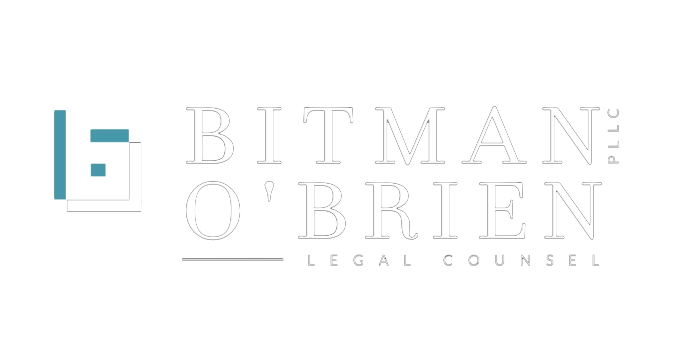Legal Concerns Caused by COVID-19
As we move forward and begin the see the potential for recovery in our lives and the larger economy, many are confronting difficult decisions about their personal and business finances. So many unknowns will have to be addressed in the coming months and Bitman O’Brien & Morat has identified the three top legal challenges our clients are currently facing.
Force Majeure
Due to the financial impact of COVID-19, companies and individuals may seek to terminate agreements they can no longer perform or continue. One avenue to avoid such a contract or obligation is through Force Majeure. A Force Majeure clause is a contractual provision which may excuse either one or both of the parties’ performance of a contract when a circumstance (such as a pandemic) is beyond the parties’ control and makes performance impractical or impossible. In Florida, a party that seeks to apply a Force Majeure clause must show that the Force Majeure event was unforeseeable or outside of the party’s control. As related to COVID-19, this is a way for a party to avoid a contract or obligation, such as a lease, construction contract, sale of goods, membership agreement, or the like.
Employment Issues
With many businesses starting to re-open, it is only natural for both employers and employees to wonder what issues they may encounter as the workforce returns to ensure the safety of themselves and their customers. What are the best practices for virus testing, monitoring temperatures, and liability waivers. Companies should feel confident in their procedures and prepare for employment-related issues such as sick leave, wearing masks, sanitizing, and creating a healthy environment. Employers should stay informed and monitor the Center for Disease Control and Department of Labor websites. As well as should comply with the Families First Coronavirus Response Act (FFCRA) to understand the procedures for employees who need time off to deal with illness and other potential struggles.
Bankruptcy
Because of the practical realities of COVID-19, more and more individuals and companies will need to file Chapter 7 Bankruptcy to eliminate unavoidable crushing debt. Chapter 7 Bankruptcy is the legal procedure where the debtor’s unsecured debt is discharged after the debtor’s non-exempt assets have been liquidated. In order to file a Chapter 7 Bankruptcy in Florida, a person must own property in the state or be a permanent resident. It is most important for someone considering filing for bankruptcy to know which assets are exempt. In Florida, this includes homestead (primary residence), motor vehicles (up to $1,000 equity), wages and earning, and retirement accounts.
Chapter 11 Bankruptcy, on the other hand, is mainly used to reorganize an operating business. Chapter 11 Bankruptcy differs from Chapter 7 Bankruptcy in that a business must obtain court approval to continue business operations. In addition, Chapter 11 Bankruptcy differs from Chapter 13 Bankruptcy in that it allows the debtor to continue to receive a salary and to pay their staff, if applicable.
This is a significant option for companies to consider if their debts are outpacing their income due to COVID-19 business disruption. It is a way to ensure companies can exist, continue operations, and emerge post-bankruptcy with significantly reduced debts.
Bitman O’Brien & Morat, PLLC has a roster of counselors with deep knowledge and experience who can help you navigate these difficult legal decisions. Please contact us at 407. 815.3110 or visit bitman-law.com.

